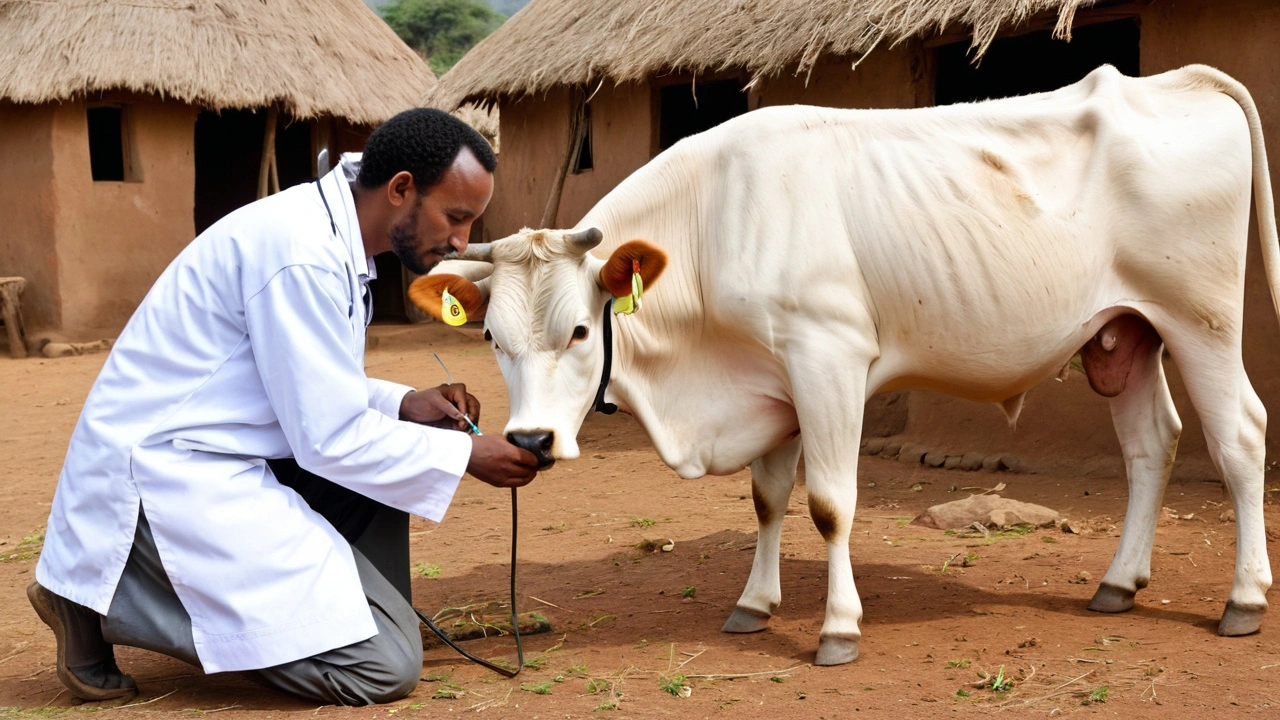Veterinarians Salary in Ethiopia: What You Really Get Paid
Wondering if a career as a vet in Ethiopia pays off? You’re not alone. Animal health is important in Ethiopia, with millions depending on livestock. Yet, salaries for veterinarians aren’t always crystal clear if you’re just starting out or thinking about this field.
So, how much does a veterinarian actually earn in Ethiopia? On average, entry-level vets make much less compared to many other countries. Starting salaries for fresh graduates can sit around 5,000 to 8,000 ETB per month in government jobs, while private clinics or international NGOs sometimes offer slightly higher pay. Location plays a big role—vets in Addis Ababa and big regional cities often take home more than those in rural areas.
Experience matters too. As a vet racks up a few years, salaries can climb to 12,000 ETB monthly or higher, especially in specialty animal hospitals or working for big farms. Some expats or vets who work in the non-profit sector might get foreign currency bonuses or extra benefits, but those jobs don’t come up every day and the competition is fierce.
Why is the pay range so wide? It depends mostly on who’s hiring. The government, though it offers stability, isn’t big on high salaries. Private animal clinics, pet hospitals, or livestock companies can pay better—sometimes offering performance-based bonuses. Teaching positions at universities usually come with decent starting pay and perks like housing allowances, but they often require advanced degrees.
Salaries also reflect the demand for vets in Ethiopia’s economy. With its huge livestock population, Ethiopia needs skilled animal health workers, yet there are more graduates than high-paying jobs. Many veterinarians boost their income by working part-time at multiple clinics or taking on consultancy gigs for farms.
Career advancement opens up more options. Vets who specialize in areas like poultry, dairy, or lab diagnostics often move into managerial or training roles, with monthly earnings reaching 20,000 ETB and up. Still, these opportunities take time and hands-on experience.
Thinking about going into business? Some vets open their own clinics or start livestock supply stores. While this route involves risks and initial costs, it offers higher income potential if you find the right location and build a strong client base. It’s no get-rich-quick scheme, but with Ethiopia’s growing urban pet care scene, there’s real opportunity for those who hustle.
To sum up, being a veterinarian in Ethiopia isn’t about making a fortune. The job offers stability, a chance to help both people and animals, and with effort, the potential to earn a decent living. Pay rises gradually with experience, specialization, and side work—but it takes time. Want more specifics? Check out real-life stories and job market updates right here on Ethiopia Jobs.





